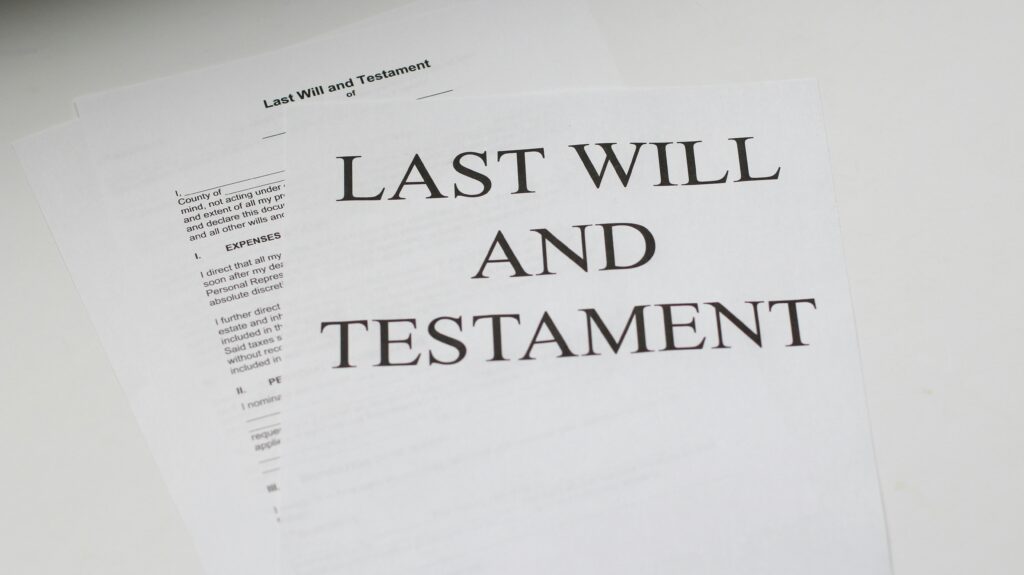
How to Avoid Inheritance Tax on a Property
Inheritance tax can be a tricky issue, especially when it comes to property. With rising house prices, more and more families are finding themselves caught in the inheritance tax net. So, you’re not alone in wondering how to avoid inheritance tax on a property.
But good news: There are a few ways to reduce your liability and ensure that more of your assets go to your loved ones rather than to the taxman. None of them are rocket science, but you do need to weigh up your options carefully. Let’s get stuck in.
What is inheritance tax?
In a nutshell, inheritance tax is a tax on the estate (the property, money, and possessions) of someone who has died.
In the UK, the current inheritance tax threshold for 2024/25 is £325,000. This means that if your estate is worth more than £325,000 when you die, anything above that amount could be taxed at 40%.
Given today’s property prices, it’s not uncommon for even smaller family homes to exceed the threshold, leaving your beneficiaries with a not-so-small tax bill.
Three top ways to reduce or avoid inheritance tax on a property
Thankfully, there are ways to reduce or even avoid inheritance tax on a property. Let’s look at three popular strategies that have served many people well.
1. Gift the property early
One way to reduce your inheritance tax liability is to gift your property to your children or other beneficiaries while you’re still around. Under the seven-year rule, as long as you survive for seven years after making the gift, the property is no longer part of your estate for inheritance tax purposes.
What’s more, leaving your estate to a surviving spouse or civil partner can ensure that inheritance tax isn’t due at all. This is because anything you leave to a spouse or civil partner is tax-free, and if they survive you, they can inherit your unused tax-free threshold (up to £325,000) and the residence nil-rate band if you’re passing on a home. That means you could protect up to £1 million from tax as a couple.
Gifting is a straightforward way to reduce your estate’s value, but there’s a catch—if you want to continue living in the property after gifting it, you’ll need to pay market rent to the new owners. Otherwise, HMRC might still count it as part of your estate for tax purposes, calling it a “gift with reservation of benefit”.
Plan carefully and make sure you understand the full financial impact, so getting some advice before going down this route is definitely worth it.
2. Use your inheritance tax allowances
Take full advantage of the residence nil-rate band (RNRB). This additional inheritance tax threshold, on top of the basic £325,000, allows you to pass on an extra £175,000 tax-free if you leave your home to direct descendants like your children or grandchildren.
So, if you leave your house to your kids, you could protect up to £500,000 from inheritance tax. Even better, if you’re part of a couple, the unused allowance can be transferred to your spouse or civil partner, meaning the two of you can potentially pass on up to £1 million tax-free.
Keep in mind, though, if your estate is worth more than £2 million, the RNRB gets tapered down. So, check whether your estate fully qualifies to maximise this allowance.
3. Set up a trust
If you’re looking for a way to manage how and when your assets are passed on, setting up a trust could be a smart move. By placing your property into a trust, you can remove it from your estate for inheritance tax purposes, helping to reduce your tax bill.
Trusts give you control over who benefits from the property and when—perfect if you want to ensure assets are used wisely, especially if beneficiaries are young or you want to stagger their inheritance. However, trusts can be complicated, and some might have their own tax charges, like a 10-yearly inheritance tax on the value inside the trust.
As with all things inheritance tax-related, it’s a good idea to speak to an expert to make sure this option works for you and doesn’t end up costing more than it saves.
Make a will – the simplest way to avoid inheritance tax
One of the easiest and most effective ways to reduce or avoid inheritance tax is by making a will. Without one, the rules of intestacy kick in, which could mean a larger chunk of your estate is subject to inheritance tax – especially if you have children or non-spousal relatives involved.
A will lets you clearly dictate who gets what, including leaving tax-exempt gifts to charity or passing your estate to a surviving spouse or civil partner. Both can help reduce the inheritance tax burden.
Should I opt for equity release?
Equity release allows you to release some of the value tied up in your home. You get cash — tax-free — to use as you wish, while reducing the value of your estate, thereby potentially also your inheritance tax bill.
But such a step requires what’s known as a lifetime mortgage, where interest accumulates until your beneficiaries settle up after you’re gone. This could, conversely, end up costing more than inheritance tax (though every situation is different so it’s worth talking to a financial advisor).
What to do next
Start by understanding your options—from gifting your property to using tax allowances—and seek professional advice to ensure you’re making the best choice for your family.
If selling your home becomes part of the plan to manage your estate, Sell House Fast offers a quick, no-fuss solution. We’re a trusted cash house buyer with a streamlined process that helps you sell fast, with no hidden fees. You’ll get the certainty and peace of mind that comes from working with a reliable buyer.
Get in touch for a free, no-obligation quote and see how we can help you take control of your family’s financial future.


